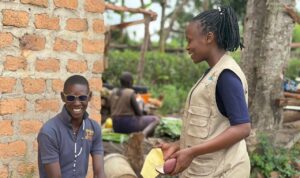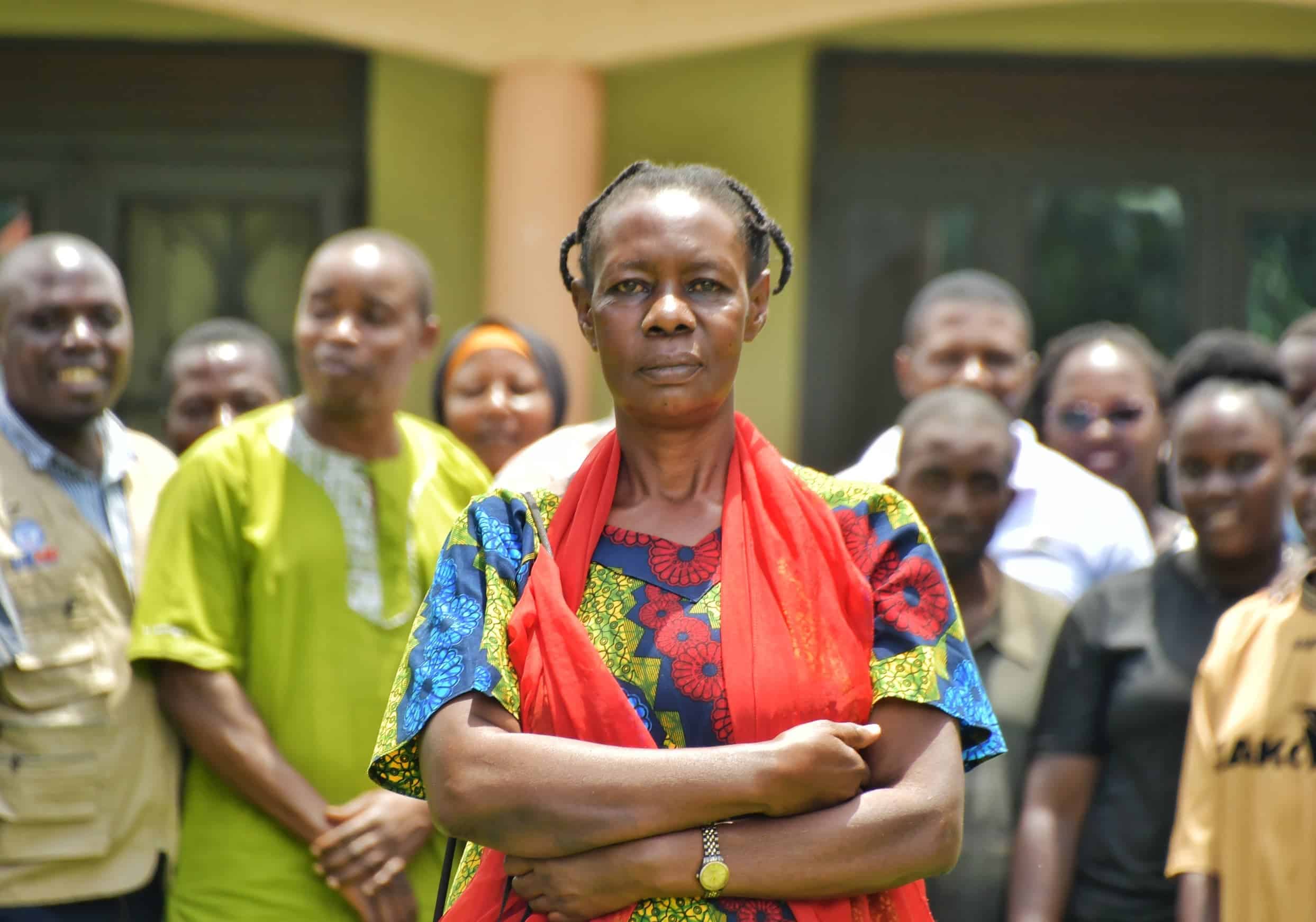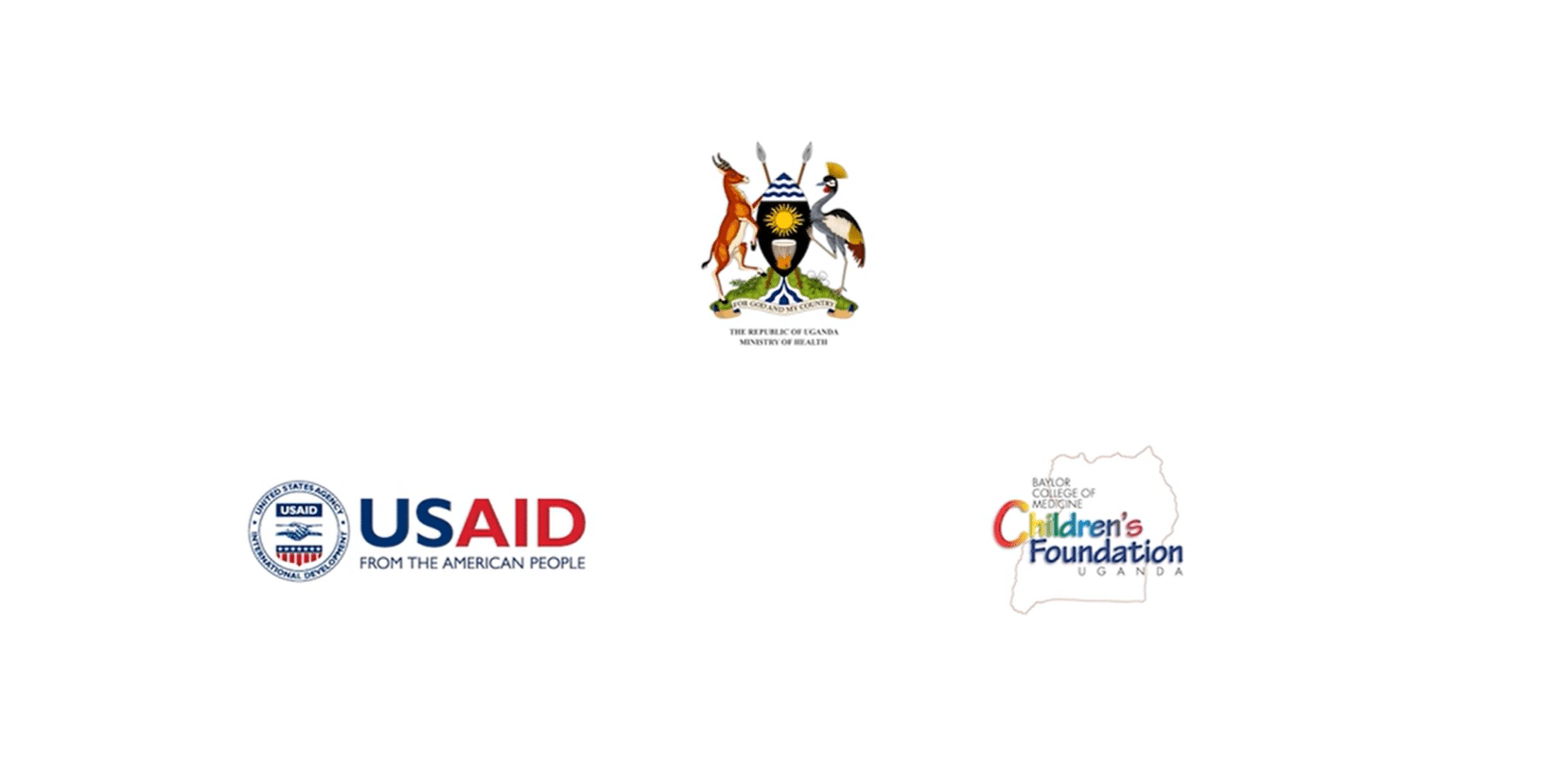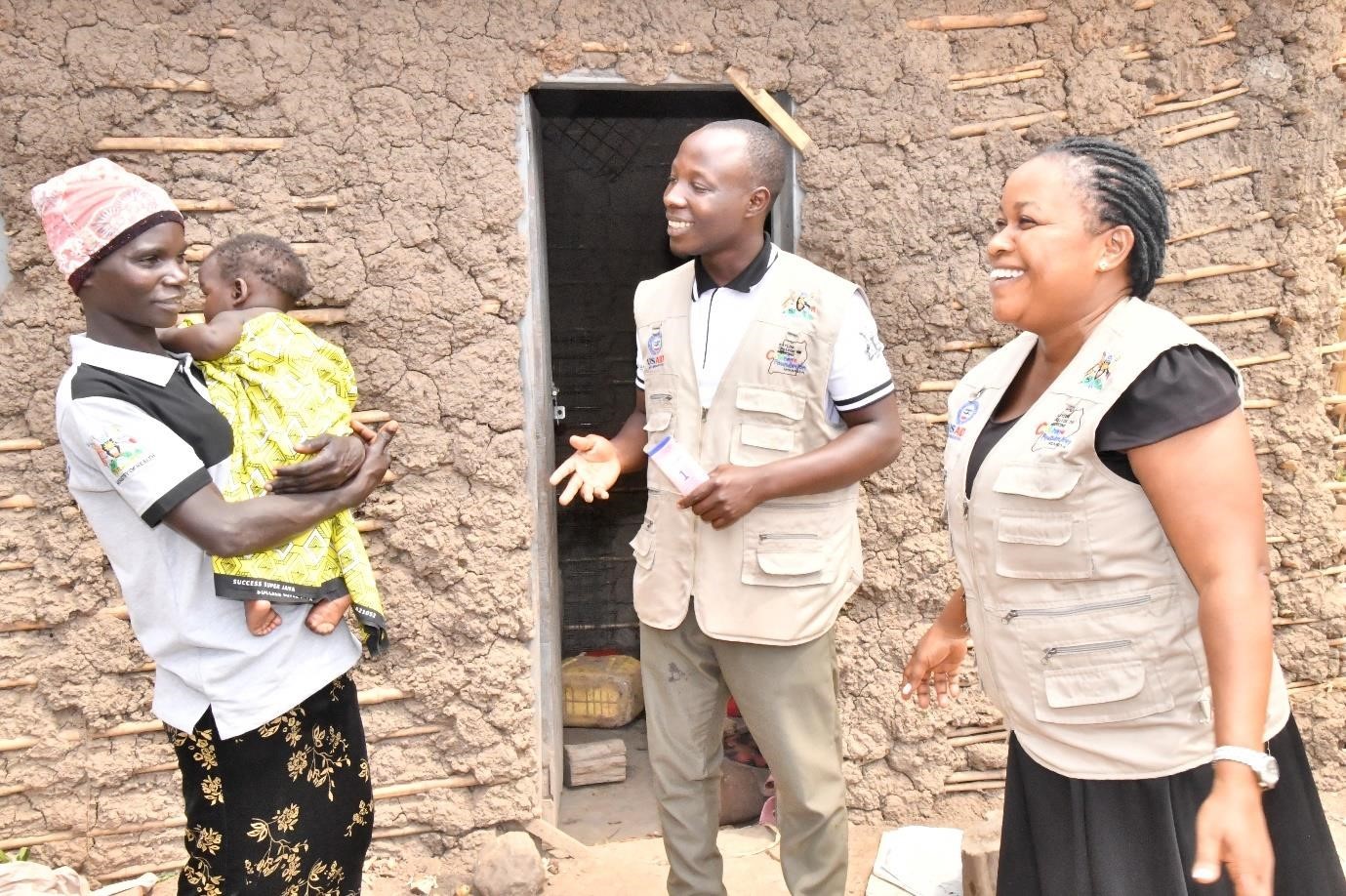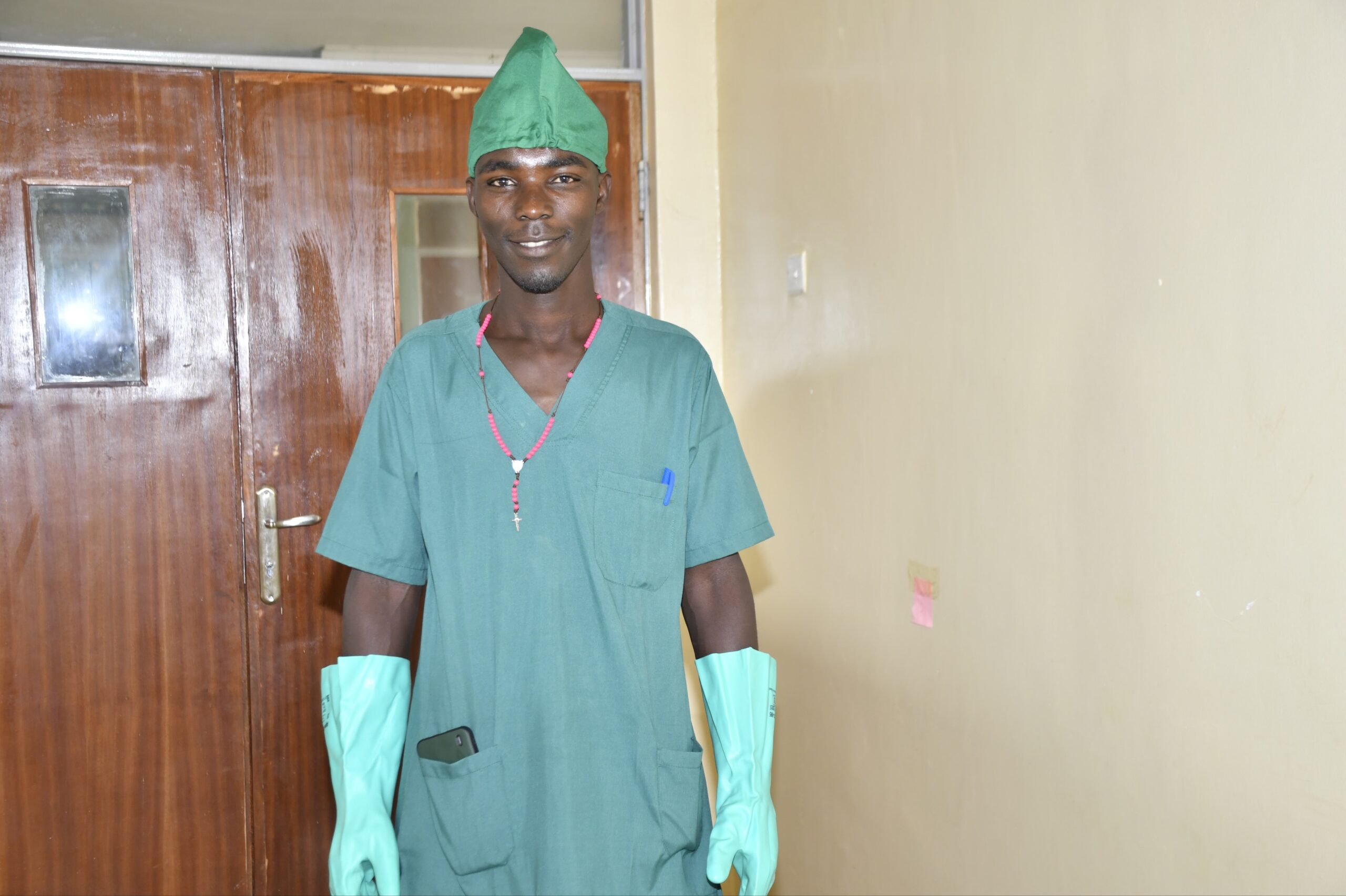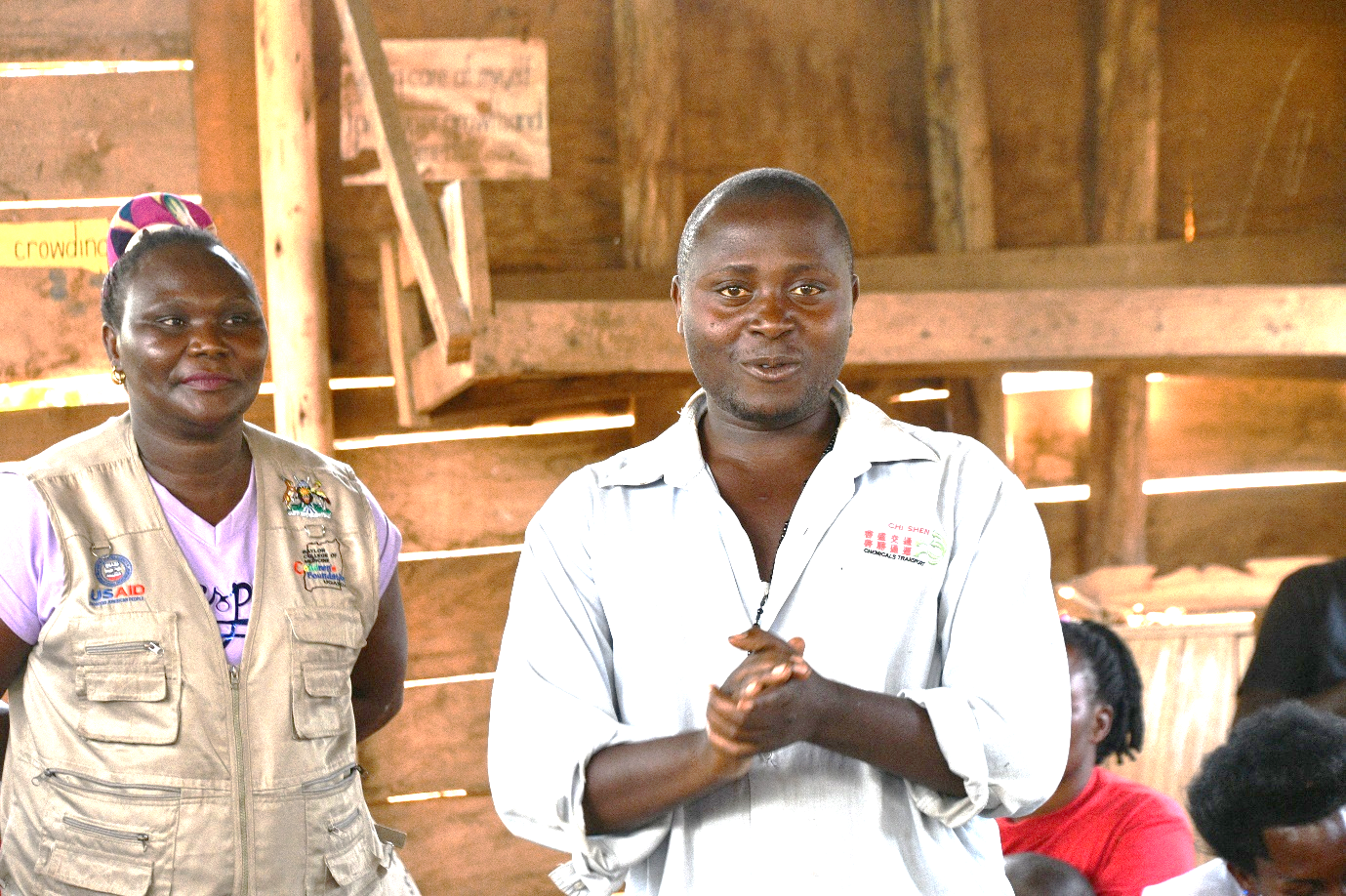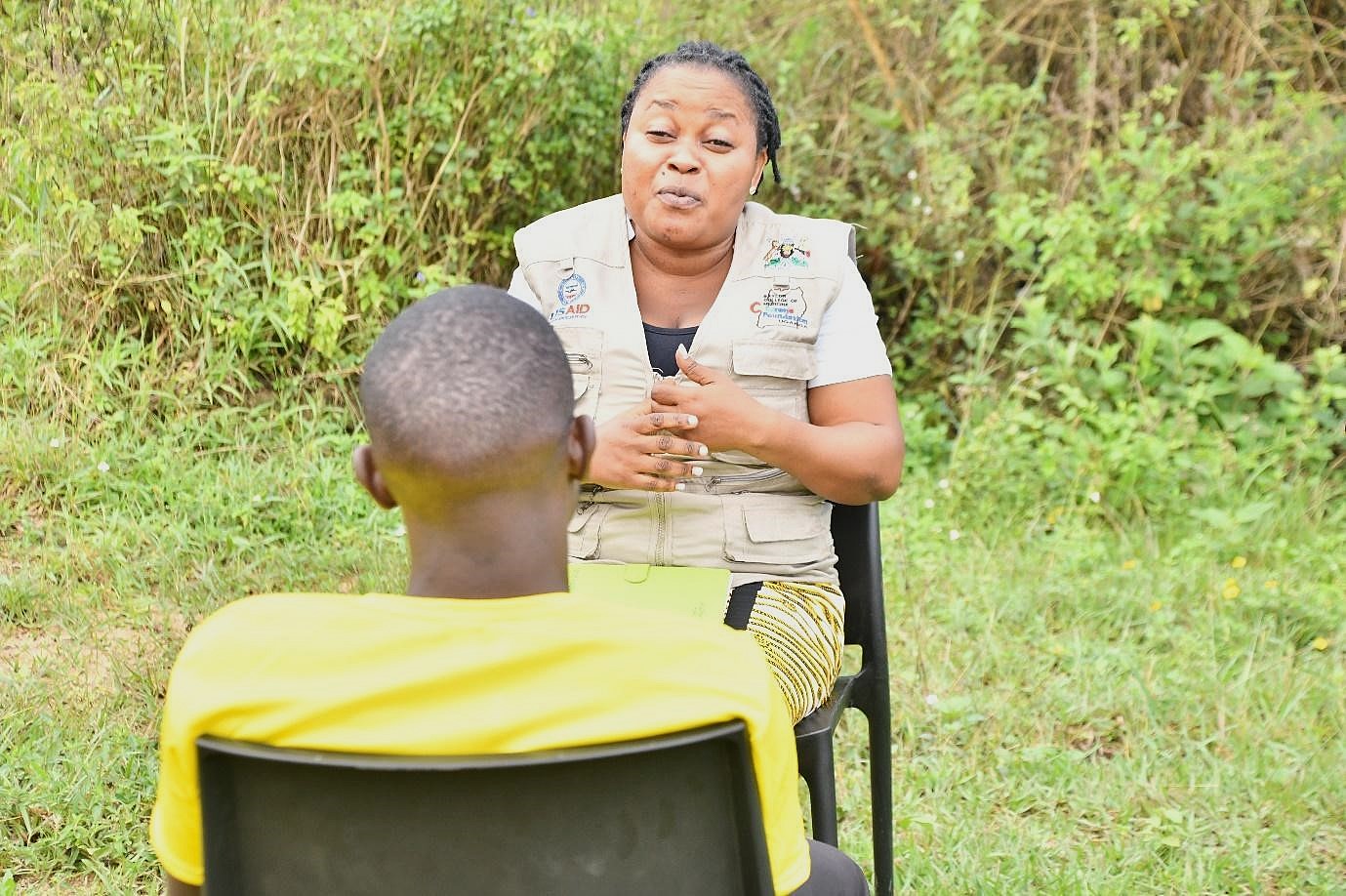Dr Rita Nabbagala smiles after delivering corrective lenses from the National Ebola Survivors’ Program to one of the Ebola survivors with vision problems arising due to Ebola
On September 20, 2023, the Ministry of Health declared that there was an outbreak of the Sudan Ebola virus disease in Mubende district in Uganda. The fatal disease had claimed several lives, was spreading to other districts, and was getting out of hand. The Ministry of Health immediately activated its emergency response plan, involving non-governmental organizations (NGOs) to set up treatment centers, deploy medical personnel, and implement strict infection prevention control (IPC) measures. Baylor Uganda Foundation was among the NGOs that responded with support from the United States Agency for International Development (USAID), and immediately sent out a call for volunteers to join the cause.
Rita Nabaggala, 30, a young, vibrant doctor, was among the 12 volunteers who responded to Baylor’s call for health workers to support clinical management, trauma counseling and nutritional support to infants below 2 years of age who were separated from their mothers. ‘ I had participated in the COVID response, which gave me invaluable insight into pandemics, but this was different,’ says Rita. Although she knew that the risks were high because Ebola had a mortality rate of 98%–99%, her passion for helping others outweighed any fear she had. She started to mentally prepare herself to fulfill the doctors’ oath and her childhood passion to help others.
Drawing courage from others
‘On Sunday, September 25, 2022, we were picked up from Kampala district to go to Mubende,’ recalls Rita. ‘I was scared because there were chances that I might not return. Worse still, I had not told my parents about it,’ narrates Rita. Rita’s fear and apprehension however began to fade as she witnessed the dedication, bravery, and unwavering commitment of her fellow volunteers. Rita felt inspired and reassured that she had made the right decision. Additionally, observing the experienced doctors fearlessly facing the dangers of working in an Ebola Treatment Unit gave Rita a newfound sense of determination and confidence in her own abilities. ‘When I also saw the older doctors and others who have travelled from across the world to respond to the outbreak, I reminded myself that if they could do it, so could I,’ says Rita. With determination and renewed courage, Rita attended the training on donning and doffing personal protective equipment (PPE) to go into the Ebola Treatment Unit (ETU).
Shock experiences
‘In the ETU, I witnessed patients with high temperatures of over forty degrees Celsius. At first, I thought the three thermometers I used on a patient had malfunctioned until I realized the severity of the Ebola outbreak,’ says Rita. Her subsequent encounter with a 19-year-old patient further cemented her realization that a variety of factors, including medical intervention and possibly even divine intervention, contributed to the patients’ survival during the epidemic rather than just age or immunity. This realization motivated Rita to continue fighting for her patients’ lives. Her unwavering commitment and that of the other health workers played a significant role in the relatively high number of survivors, who were 87, and the low number of deaths, which came to 55 during this devastating epidemic.
If it had not been…
Rita believes that the lockdown instituted by the government played a crucial role in preventing the further spread of the virus to Kampala and other districts, which would have resulted in a
higher death toll. The strict adherence to safety protocols and constant monitoring helped ensure that Rita and her colleagues remained vigilant and protected throughout their time in the ETU. They used the buddy system, where they paired up to watch out for each other and minimize their risk of exposure to the virus.
Rita admits that IPC was at the helm of their survival. ‘Without following proper hygiene practices and safety protocols to protect ourselves, we would not have survived’.
